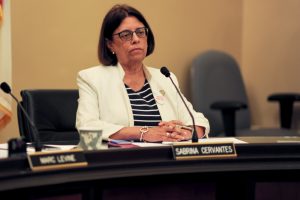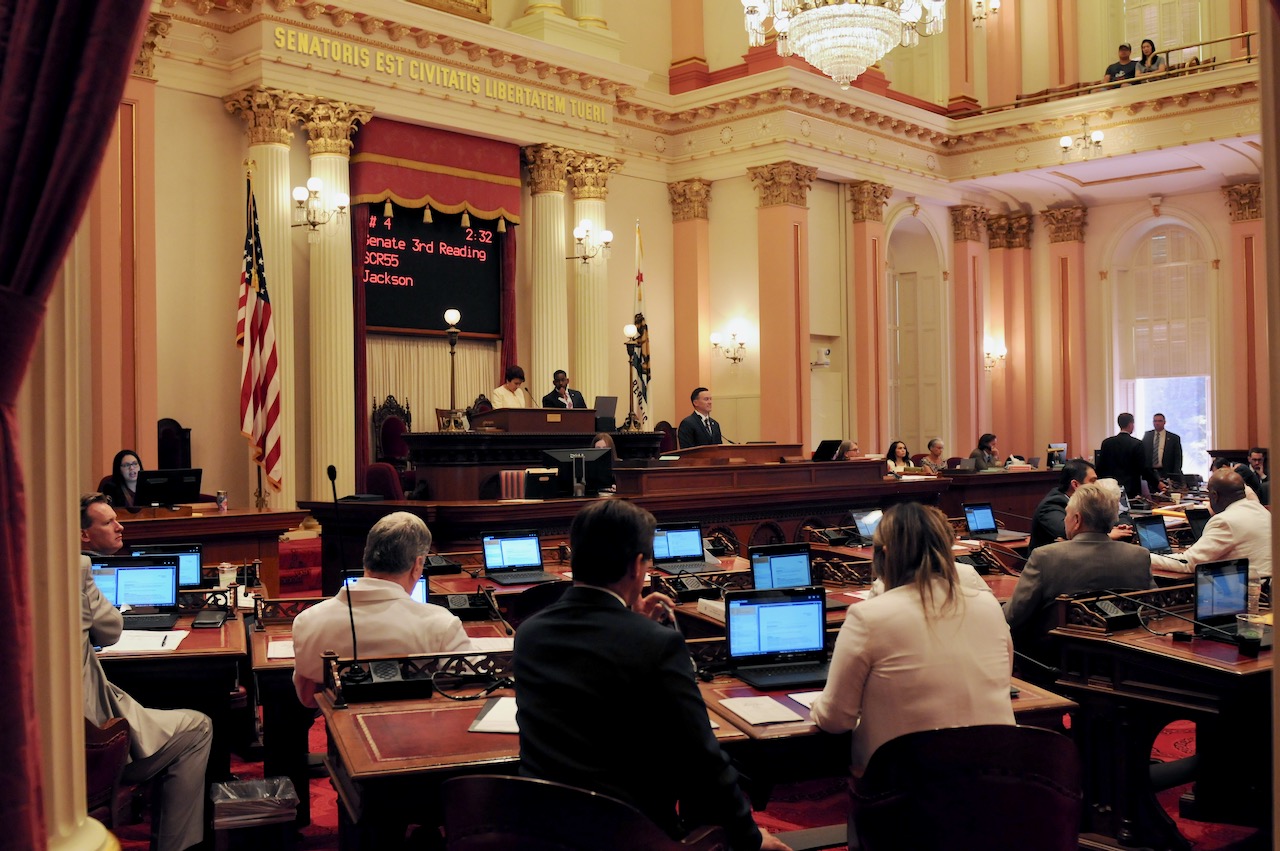
Senator Monique Limón. (Kevin Sanders for California Globe)
Alzheimer’s Disease Would See More Early Diagnosis Methods and Treatment Strategies Under New Bills
Companion bills AB 2047 and AB 2048 would also expand new strategies to rural areas
By Evan Symon, February 4, 2020 2:32 pm
Two bills revolving around Alzheimer’s disease were introduced to the Assembly on Monday with the hope of helping patients find out if they have the disease early and what more they can do about it.
Assembly Bills 2047 and 2048, authored by Assemblywomen Cecilia Aguiar-Curry (D-Winters) and Monique Limón (D-Santa Barbara) respectively, were largely designed to help patients, loved ones, medical staff, and caregivers catch the disease early and help everyone involved develop better treatment strategies as the disease progresses.
An expanded toolkit for Alzheimer’s

Under AB 2047, places that help treat and diagnose Alzheimer’s in patients would assist the California Department of Public Health in bringing out a “train-the-trainer” toolkit for finding an Alzheimer’s diagnosis and recognizing a degradation of cognitive abilities. The toolkit, an expansion on the current instruction manual and currently only available in urban areas in California, would also be given to medical facilities and clinics outside of urban areas to “underserved” and rural areas.
There would also be a Departmental evaluation of the effectiveness of the toolkit three years after implementation.
“There is a critical need for increased and early diagnosis of Alzheimer’s and Dementia,” said Assemblywoman Aguiar-Curry in a statement. “Receiving an Alzheimer’s diagnosis can be devastating, but now we have the tools to ensure that individuals and families receive timely and accurate information. If we fully deploy these tools, we can save families valuable time to find and access benefits and develop a plan for their loved ones’ care.”
A new tool for caregivers and loved ones
The companion bill, AB 2048, would create a “tool” for loved ones and caregivers to understand what Alzheimer’s disease is, what the options are, and what treatment methods are available.
“California has the largest number of people impacted by this disease. This tool would assist individuals and their caregivers navigate the oftentimes difficult conversations with their health care providers,” said Assemblywoman Limón in a statement. “Understanding the diagnosis, treatment options, and the disease would provide individuals better assurance when making decisions or asking questions.”
A growing problem in California
Alzheimer’s, a disease which causes memory loss, reduced functions, and, later on, death, is currently on the rise in California. The California Department of Public Health has found that it’s the third leading cause of death in California, with the number of cases in the state increasing by 243% from 2000 to 2015. In addition, 68% of all cases affected women.
Figures such as these, as well as a push by Alzheimer’s advocacy groups such as the Alzheimer’s Association, helped bring about the bills and convince the Assemblywomen to write and introduce them.
“It’s definitely a growing problem here,” said General Practitioner Dr. Charles Armstrong. “I’ve seen more patients come in with it being diagnosed, and I’ve had to suggest many people get tested. Seeing the mind go isn’t a pretty thing, and it’s also dangerous. If you can’t remember if you’re on any medications or if you forget that you’re allergic or if you forget parts of your family medical history, it can be fatal. And I’m just talking medically.”
“Having these sheets to help people know early and help patients family understand what’s going on and what to do helps immeasurably.”
AB 2047 and AB 2048 have already been supported by many Alzheimer’s and medical groups, with many Assemblymembers signaling their support for the bills. There is no known opposition to the bills in the Assembly.
Both bills are due to go into Assembly committees in the near future.
- Bill to Require Law Enforcement Disclosure if AI Was Used To Help Write Reports - August 7, 2025
- Gov. Newsom Files FOIA Request To ‘Expose True Cost’ Of L.A. Federal Troop Deployment for Anti-ICE Riots - August 6, 2025
- California Redistricting: How Newsom’s Plan Will Demolish Hard Fought GOP Gains - August 6, 2025




